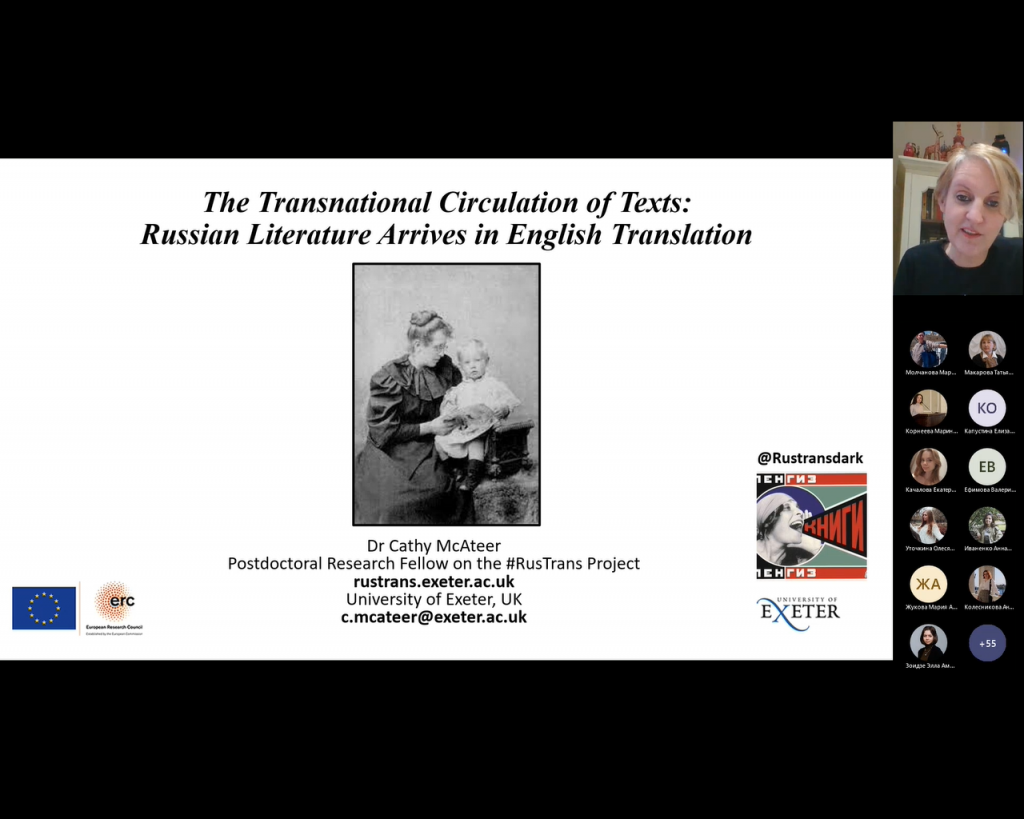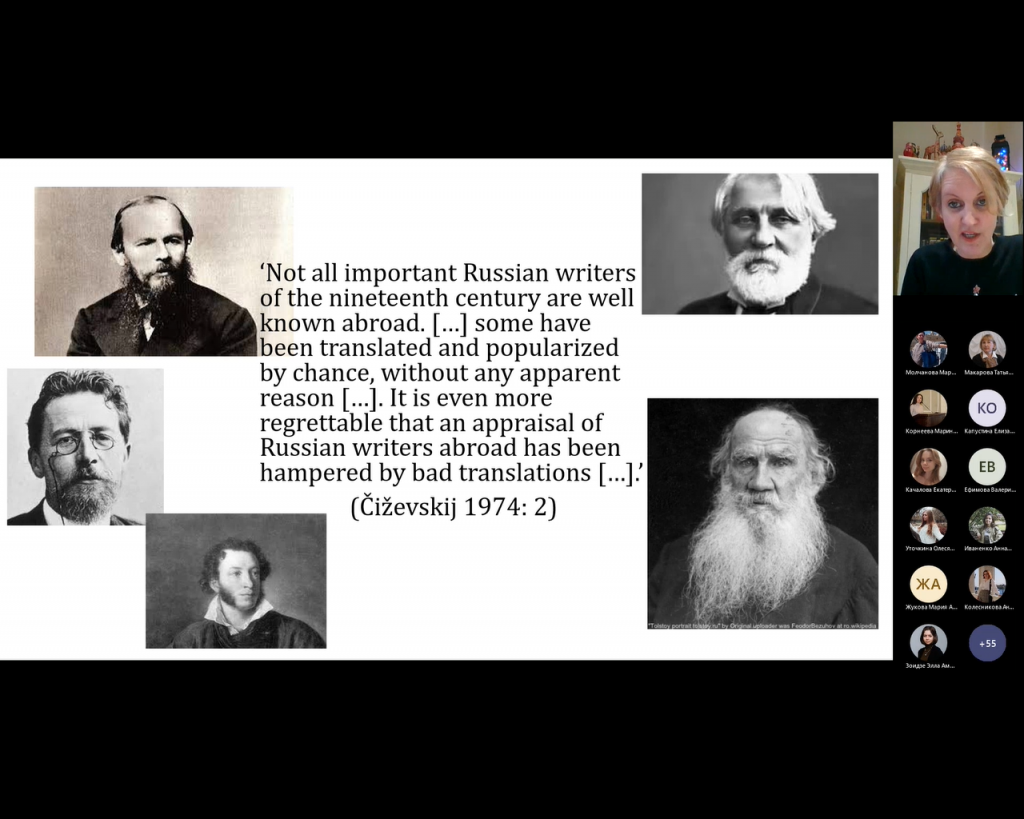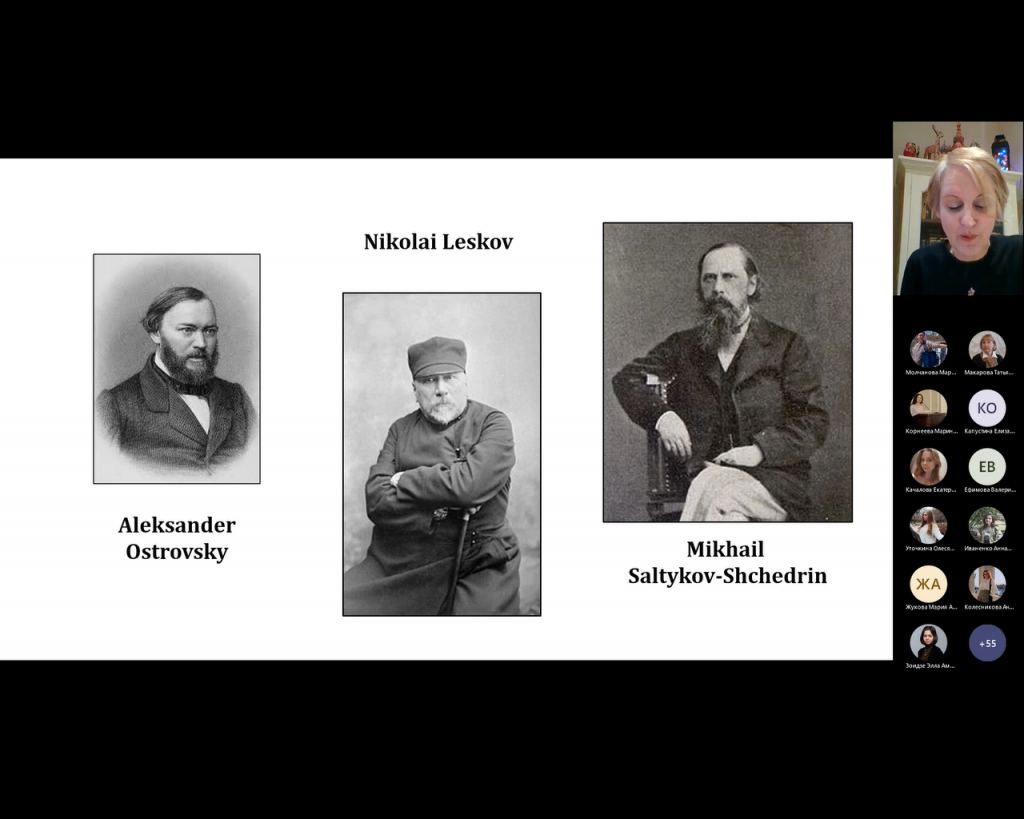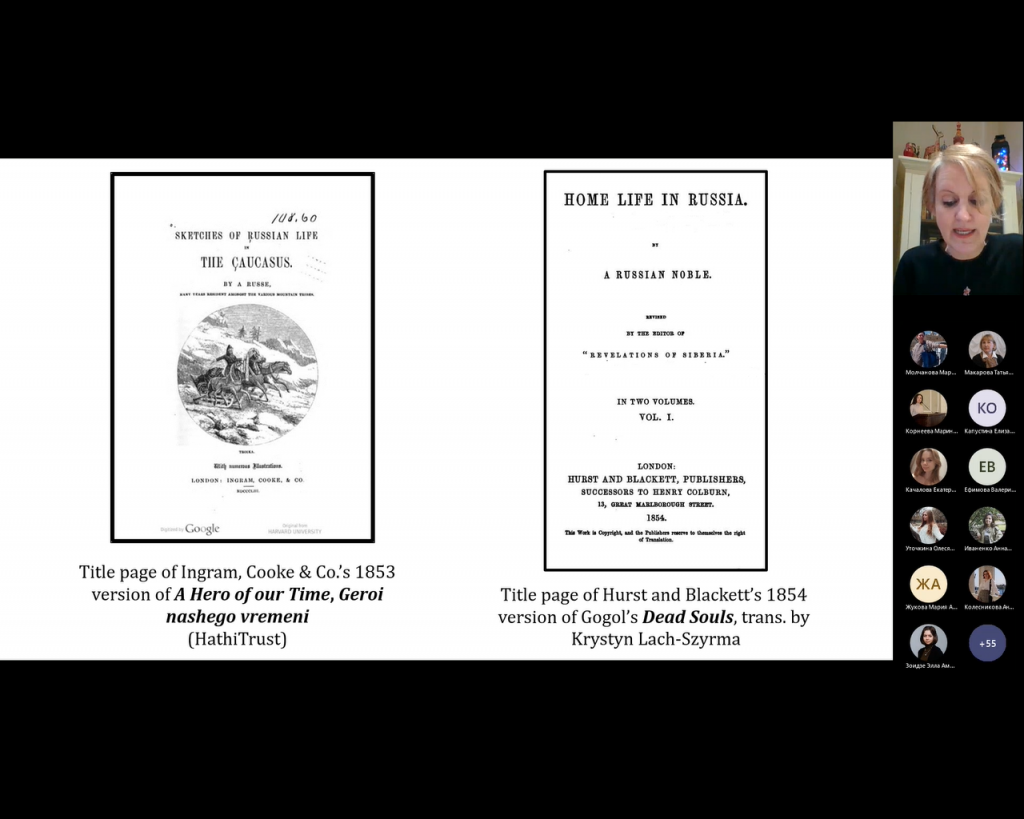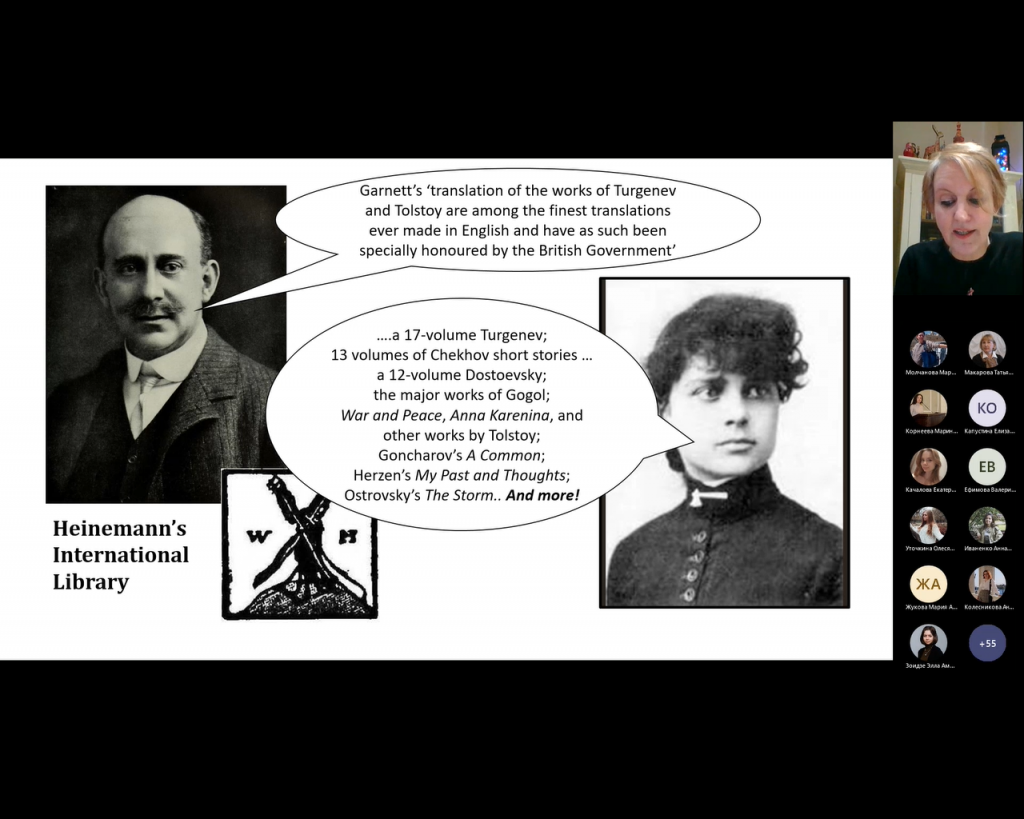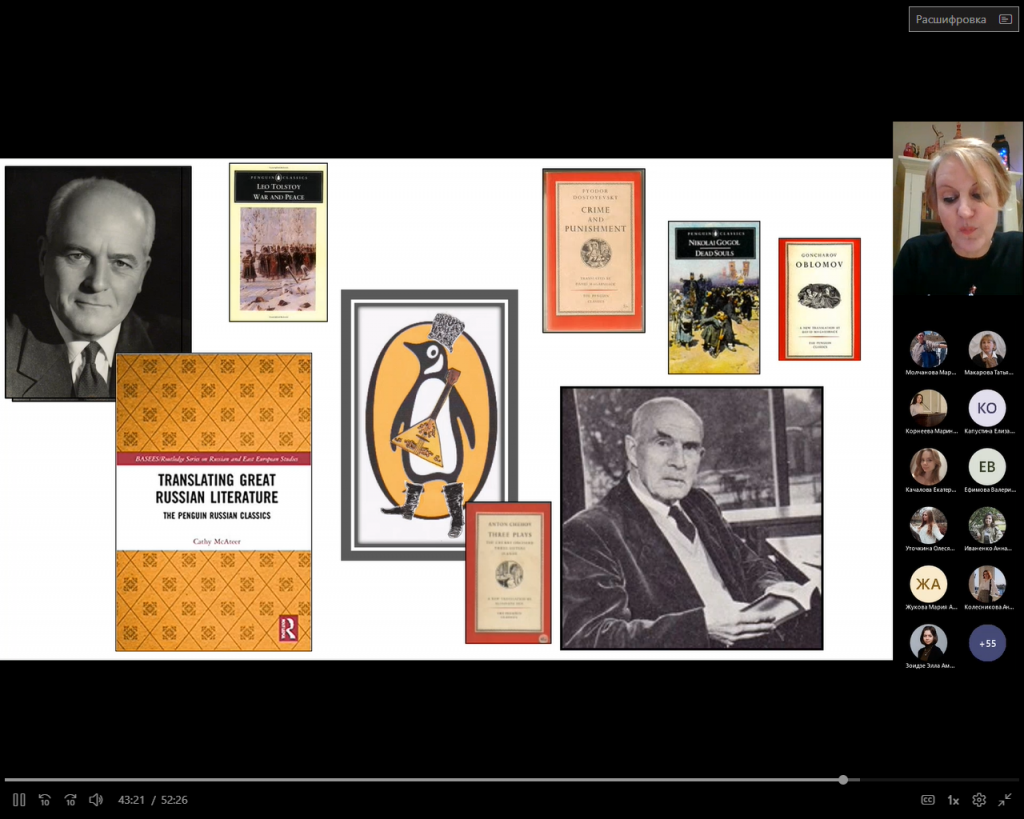On December 20, MCU’s Institute of Foreign Languages held the lecture “The Transnational Circulation of Texts: Russian Literature Arrives in English Translation” by Doctor Catherine McAteer, Postdoctoral Research Fellow on the #RusTrans Project at the University of Exeter, U.K.
The lecture was dedicated to the history of Russian literary translation to English, which began in the 19th century with the surge of international interest in the Russian language and culture. The interest can be explained by the political and social unrest in Russia in that period. Doctor McAteer underlined that, regrettably, not all Russian authors of the 19th century who should have been translated, like Alexander Ostrovsky, Nikolay Leskov, or Mikhail Saltykov-Schedrin, were popularized and translated.
Doctor McAteer noted that Russian literature began to be translated firstly in the U.S. in the 1870s. In the U.K., the first translations appeared only a decade later and were made via German and French versions. Among the British, Russian literature was prejudiced due to the Russophobic moods during the Great Game and the Crimean War. The attitude started to change when The Forster’s Education Act was adopted in 1870. The demand for books significantly grew and British publishers included some Russian authors in their series. One of the leading publishers was Heinemann’s international library collaborating with Constance Garnett, the most prominent Russian literary translator of the time. Between 1892 and the mid-1920s, Constance Garnett translated over 70 volumes of Russian literature, including Tolstoy, Chekhov, Dostoevsky, Turgenev, Ostrovsky, Herzen, among others. Nonetheless, later Vladimir Nabokov and Joseph Brodsky criticized her translations.
After the lecture, Doctor McAteer answered questions by the audience. The most challenging Russian literary translation to English is Gogol’s works as he was Ukrainian-born and his language was somewhat different from classical Russian.
The presentation by Doctor McAteer has started a series of lectures on British culture at the Institute of Foreign Languages.


